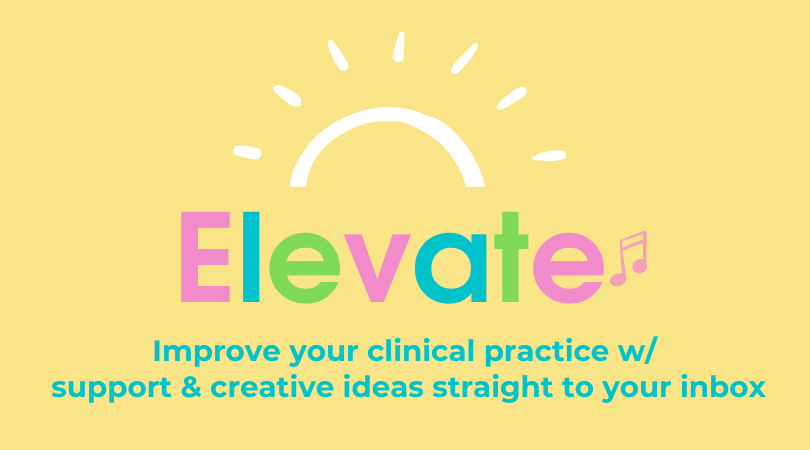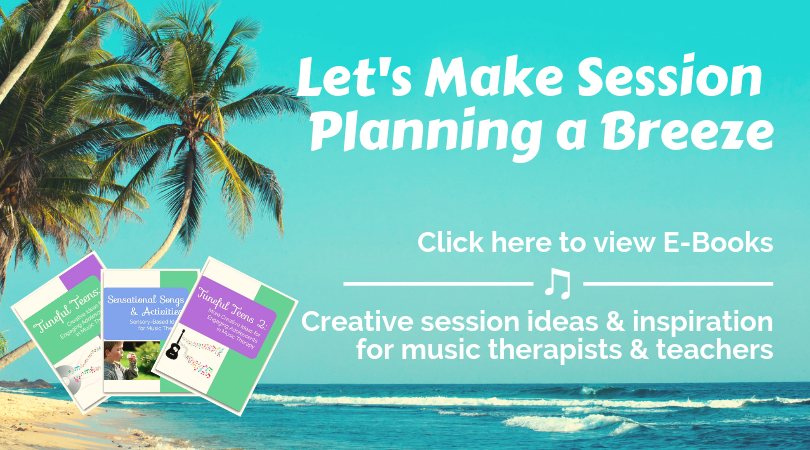
One of the key things I’ve learned when it comes to working with teens in music therapy is that the very first step is building rapport.
If we are asking them to sing,
if we are asking them to be vulnerable and to share about their lives,
if we are asking them to do hard things,
then we need to take the first step and build a sold foundation of trust.
Since we often need to do this in the first few minutes of a session, here are five quick ways we can build rapport with our teen clients:
Be interested in their music –
Listen to their story about going to an Imagine Dragons concert, or how they’ve watched Taylor Swift’s Eras Tour five times. Really listen and ask questions about how they got into the music and what they like about that singer.
Bring in music they like –
This seems obvious, but I can’t tell you how many times I’ve observed music therapists using children’s songs or songs that are not appropriate for their teen clients and students. Listen and take notes (seriously!) about the music your clients are into. I have a running list that I add to each time a client shares their new favorite singer or song. I pull from this list when I’m creating musical experiences.
Let them lead –
Even though you’re the therapist, role reversal can work wonders when it comes to building rapport. Give your clients or students the opportunity to ask the questions during a lyric analysis or lead the group in song.
Be vulnerable –
I will never forget the time I was leading a rap writing experience, and at the end I stood up to do my rap. My heart was pounding and I had butterflies! This was a great experience for me because it helped me truly feel what it’s like when I ask my clients to do hard things. If I am asking them to be vulnerable and share, then I have to be willing to do the same.
Be goofy and light-hearted –
We are often asking our clients and students to do things that are challenging or out of their comfort zones. I think it’s so important for us to bring a light-hearted attitude and make our experiences fun. Having fun does not mean we aren’t working hard to meet therapeutic goals!
If you found this post inspiring and want more ideas for how to infuse creativity and FUN into your music therapy sessions and music classes with middle and high schoolers, check out the Elevate Email Idea Subscription.
It’s now approved by CBMT for 10 continuing education credits per package (previously it was 7)!
And, each Elevate Package (there are four to choose from – Teen Ideas, Attention Perception Ideas, a Combo Pack, and Holiday & Theme Ideas) will be on sale the week of April 15th.




Leave A Comment